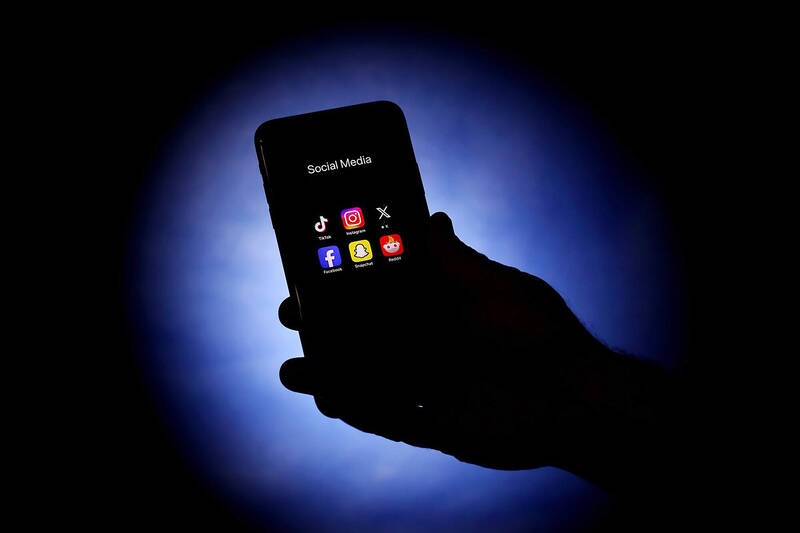In 2014, a group of researchers from Harvard University and the University of Virginia asked people to sit alone with their thoughts for 15 minutes. The only available diversion was a button that delivered a painful electric shock. Almost half of the participants pressed it. One man pressed the button 190 times — even though he, like everyone else in the study, had earlier indicated that he found the shock unpleasant enough that he would pay to avoid being shocked again.
The study’s authors concluded that “people prefer doing to thinking,” even if the only thing available to do is painful — perhaps because, if left to their own devices, our minds tend to wander in unwanted directions.
Since the mass adoption of smartphones, most people have been walking around with the psychological equivalent of a shock button in their pocket: a device that can neutralize boredom in an instant, even if it’s not all that good for us. We often reach for our phones for something to do during moments of quiet or solitude, or to distract us late at night when anxious thoughts creep in. This isn’t always a bad thing — too much rumination is unhealthy — but it’s worth reflecting on the fact that avoiding unwanted mind-wandering is easier than it’s ever been, and that most people distract themselves in very similar, screen-based ways.

Photo: Bloomberg
Smartphones have also increased the pressure to use our time productively, to optimize every minute of our lives. If once a harried commuter might have been forced to stare out of the window or read a book on the train to work, now they may try to catch up on their emails to avoid feeling guilty and inefficient. To sit and do nothing is seen as a waste of time. But that ignores the fact that when we’re doing nothing we’re often thinking quite hard. What happens to all those difficult or untamed half-thoughts that start to form in the milliseconds before we dig into our pockets and pull out our phones again?
Most psychologists studying boredom would agree that, while it can feel unpleasant, it’s useful. Like hunger or loneliness, it alerts us to a need, a desire to do something different. According to Erin Westgate, assistant professor of psychology at the University of Florida, we become bored if something fails to absorb our attention, or when we perceive it as meaningless. This is not to say that something needs to be both engaging and meaningful to keep us interested: doing sudoku might be absorbing but relatively meaningless, while reading a Peppa Pig bedtime story for the 500th time is not engaging but may nonetheless feel like a meaningful thing to do. Watching paint dry is both unstimulating and pointless, which is why it isn’t a common pastime.
In any case, when boredom strikes it should ideally serve as a prompt to do something more engaging or meaningful. If you don’t react appropriately to your boredom, or perhaps if engaging or meaningful things aren’t available to you for whatever reason, you may find yourself becoming chronically bored. That is associated with a range of problems, including depression, anxiety, poor life satisfaction, lower academic achievement, substance abuse and excessive risk-taking.

Photo: AP
There is evidence to suggest that chronic boredom is becoming more common, and that this uptick has coincided with the rise of smartphones. In a paper published last year, researchers noted that the proportion of students in China and the US who described themselves as bored steadily increased in the years after 2010, during the first decade of smartphone dominance. Why might digital media have this effect? Research has shown that the main reason we pick up our phones or check our socials is to relieve boredom, but that the behavior actually exacerbates it. One study, for instance, found that people who were bored at work were more likely to use their smartphones — and subsequently feel even more bored.
It may be that checking your phone only addresses part of what you need when you start to feel bored. Digital devices are very good at attracting your attention — in fact, everything you interact with on a screen has been designed to capture, hold and monetize it — but much of what we do online doesn’t feel meaningful. It’s incredibly easy to plan to look at your phone for just five minutes and resurface two hours later with Mastermind-level knowledge of the latest Blake Lively controversy or your ex’s holiday plans. The average American spends more than four hours a day on their smartphone and more than seven hours a day in total online. That adds up to spending 17 years of your adult life browsing the internet. I expect that even the biggest technophiles would agree that this isn’t how they want to spend their one precious life.
Phones’ efficacy at whisking us into superficial stimulation short-circuits our boredom and allows us to swiftly evade messages that we might need to hear, such as, “Why am I feeling this?” or “What do I need that I’m not getting?”
If we pause and listen, then perhaps we can make a choice rather than being manipulated by software engineers. When boredom strikes, we should resist the urge to assuage it instantly and ask ourselves: are we in search of pure entertainment or something more purposeful, an opportunity to connect with friends or our community or something different, something new? The people who choose to embrace boredom, at least for a while, may paradoxically experience less of it. It could even be the first step towards a life that feels more stimulating overall: meaningful, creative and free.

Jacques Poissant’s suffering stopped the day he asked his daughter if it would be “cowardly to ask to be helped to die.” The retired Canadian insurance adviser was 93, and “was wasting away” after a long battle with prostate cancer. “He no longer had any zest for life,” Josee Poissant said. Last year her mother made the same choice at 96 when she realized she would not be getting out of hospital. She died surrounded by her children and their partners listening to the music she loved. “She was at peace. She sang until she went to sleep.” Josee Poissant remembers it as a beautiful

Before the last section of the round-the-island railway was electrified, one old blue train still chugged back and forth between Pingtung County’s Fangliao (枋寮) and Taitung (台東) stations once a day. It was so slow, was so hot (it had no air conditioning) and covered such a short distance, that the low fare still failed to attract many riders. This relic of the past was finally retired when the South Link Line was fully electrified on Dec. 23, 2020. A wave of nostalgia surrounded the termination of the Ordinary Train service, as these train carriages had been in use for decades

March 2 to March 8 Gunfire rang out along the shore of the frontline island of Lieyu (烈嶼) on a foggy afternoon on March 7, 1987. By the time it was over, about 20 unarmed Vietnamese refugees — men, women, elderly and children — were dead. They were hastily buried, followed by decades of silence. Months later, opposition politicians and journalists tried to uncover what had happened, but conflicting accounts only deepened the confusion. One version suggested that government troops had mistakenly killed their own operatives attempting to return home from Vietnam. The military maintained that the

Lori Sepich smoked for years and sometimes skipped taking her blood pressure medicine. But she never thought she’d have a heart attack. The possibility “just wasn’t registering with me,” said the 64-year-old from Memphis, Tennessee, who suffered two of them 13 years apart. She’s far from alone. More than 60 million women in the US live with cardiovascular disease, which includes heart disease as well as stroke, heart failure and atrial fibrillation. And despite the myth that heart attacks mostly strike men, women are vulnerable too. Overall in the US, 1 in 5 women dies of cardiovascular disease each year, 37,000 of them